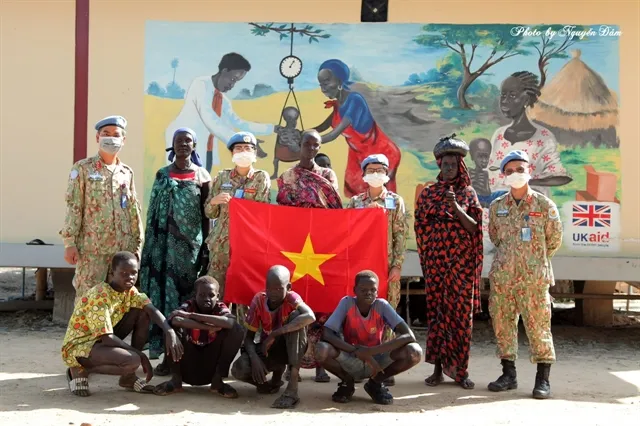
“In the last two years when Việt Nam took the role, the world faced a myriad of problems with unprecedented challenges including prolonged conflicts, escalating tensions in many regions, and emerging non-traditional challenges like COVID-19 and climate change,” said the minister at the meeting.
In response to these challenges, Việt Nam fully embraced a multilateral approach, safeguarding and upholding international law and the UN Charter, he said.
The country promoted sustainable and comprehensive solutions to conflicts, which ranged from preventing to addressing the root causes of conflicts and dealing with aftermaths of conflicts on the basis of respect for independence, sovereignty and territorial integrity, non-interference in internal affairs, and peaceful resolution of disputes, the minister said.
These endeavours always take into account the legitimate interests of all parties concerned, strengthen humanitarian assistance and the protection of civilians, and promote dialogue and negotiation, for peace and long-term development of all nations, he said.
The country also promoted advocacy and strengthened actions to support vulnerable groups in conflicts, particularly women and children through the organisation of the International Conference on Women, Peace and Security and adopted its outcome document "the Hanoi Commitment to Action" (in December 2020).
Talking about the plan upon fulfilling the role, Sơn said Việt Nam will step up the implementation of resolutions and initiatives it initiated such as supporting women and children and handling conflicts.
“Besides continuing working on overall themes of the UN Charter, Việt Nam will also implement the International Day of Epidemic Preparedness as we believe COVID-19 may persist and when it ends, we may face others. This is to raise awareness of countries in addressing the pressing challenges of our age,” he said.
“Việt Nam will also work on the implementation of the commitments on climate change, which has attracted the attention of the world, especially when Việt Nam made the strong pledge at COP26 to achieve net-zero emissions by 2050,” he said, noting that the national steering committee on implementation of this pledge has been established recently.
“The country will also continue to contribute further to UN peacekeeping missions and it will be not just within the UN but it will also participate in other peacekeeping endeavours,” he said.
“We also contribute further to other multilateral forums. Stand election for the UN body offices such as the UN Human Rights Council (UNHRC) in the 2023-2025 tenure,” the minister said.
Highlights of the tenure
During its two-year tenure as non-permanent member of the UNSC, Việt Nam strengthened humanitarian assistance and the protection of civilians in armed conflicts with concrete and tangible actions while highlighting and drawing the attention of the UNSC and the international community to the long-term consequences of wars and conflicts on the lives of ordinary people and the security and development of all nations, including the issue of explosive remnants of war (ERW).
The country also strengthened advocacy and actions to support vulnerable groups in conflicts, particularly women and children with notable activities including the organisation of the International Conference on Women, Peace and Security, convening the Open Debate on sexual violence in conflict against women and girls (in April 2021), and hosting the UNSC Arria-Formula Meeting on Addressing Challenges of Children without Parental Care in Conflict Situations (in December 2021).
Việt Nam also actively enhanced joint efforts in addressing urgent non-traditional security challenges posed to the international community, such as the COVID-19 pandemic and maritime security. Particular focus was given to climate security, with Việt Nam making active contributions to the Like-Minded Group on Climate Security at the UNSC (LMG) and the Informal Expert Group (IEG) of Members of the Security Council on Climate and Security.
Other highlights of the term include the deployment of troops to UN peacekeeping missions, introduction of the Resolutions on UN-ASEAN cooperation and on the International Day of Epidemic Preparedness.




















